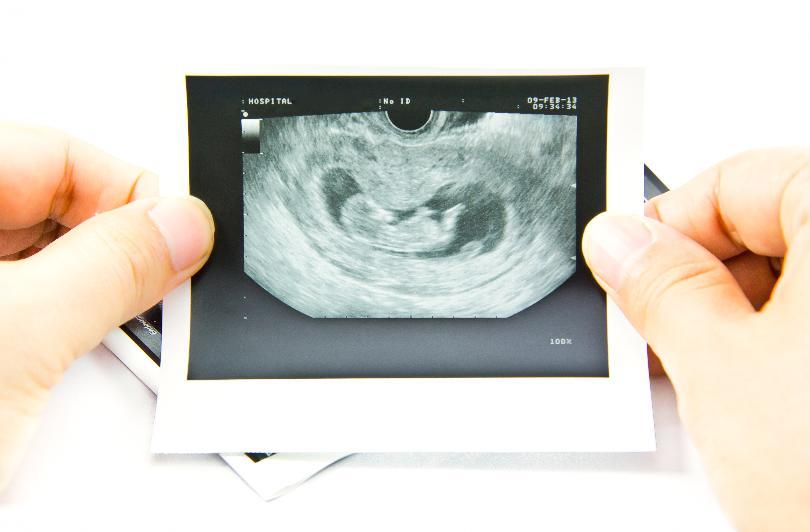Contents:
Medical Video: 10 Reasons Why You Are Not Getting Pregnant #NaturalRemedies
We know that many women use contraception to prevent unwanted pregnancies, often for social, career, or economic reasons. In other words, if this is not the right time. But there are also strong health reasons behind the big decision for a woman to avoid or delay pregnancy.
Quoted from Women’s Health Research Institute, The Association of Reproductive Health Professional has identified a number of conditions that are associated with an increased risk of adverse health as a result of pregnancy. It does not mean that all women with this condition should not get pregnant, but they must have a serious discussion with their obstetrician / midwife before planning a pregnancy, and in some cases, may need to avoid altogether.
Various reasons why doctors recommend women to delay pregnancy
1. Breast cancer
Having breast cancer during pregnancy is a fairly rare phenomenon, which is about 1 in 3,000 pregnant women. The cancer itself rarely affects direct baby growth. But having cancer during pregnancy can be difficult, both for the mother and the health team. Pregnancy can make breast cancer more difficult to find, diagnose, and treat.
Pregnancy itself is not present to worsen the prognosis for women diagnosed during pregnancy compared to the non-pregnant control group who have the same age and stage criteria (provided that standard treatment guidelines for breast cancer are adhered to). However, because the prevalence of pregnancy-related breast cancer is more prevalent in younger age populations that may have features that carry a higher risk, such as high-grade tumor metastasis and negative estrogen receptor tumors, so a group of younger women is thought to have a more prognosis low.
Ending pregnancy makes treating cancer easier, but previous studies examining pregnant women reported not finding that the act of ending pregnancy guarantees an increase in overall women's survival or cancer outcomes.
2. Ischemic heart disease and heart valve
Chronic heart disease can increase the risk for developing mothers and fetuses. Treatment for this disease may also need to be changed during pregnancy. How much heart valve disease increases the health risk of pregnancy depends on the type of disease (Aortic valve regurgitation, aortic valve stenosis, mitral valve regurgitation, or mitral valve stenosis) and how severe the stage is.
If you have mild or moderate forms of heart valve disease, and if your heart pumps blood normally, you may be able to have a normal pregnancy with close medical supervision. If you have a more severe stage of the disease, you have a higher risk of pregnancy complications. Your doctor may recommend that you consider surgery before you become pregnant. This might include procedures for widening valves or operations to repair or replace valves.
It is recommended that individuals with structural heart disease who have undergone surgical or catheter-based repair should not be considered "correct," because some residual diseases are almost always permanent and responses to the physiology of pregnancy cannot be predicted. If possible, women with a diagnosis of cardiac lesions should receive preconception counseling that includes advice on contraception, maternal and fetal risk calculations during pregnancy, and discussion of possible long-term morbidity and mortality after pregnancy.
The following conditions are generally considered to be contraindicated for pregnancy: any severe etiological pulmonary hypertension, still severe obstructive heart lesions, class III-IV heart failure, left ventricular ejection fraction (LVEF) <40%, prior peripartum cardiomyopathy (PPCM), dilated aorta from 40- 45 mm or more and unstable, or severe cyanosis.
3. Diabetes insulin dependency
Some women have diabetes before they become pregnant. This is called pregestational diabetes - different from the diabetes you get associated with pregnancy, aka gestational diabetes. Pregnancy can change the way a woman's body uses glucose. This can make diabetes worse, or cause gestational diabetes.
During pregnancy, the placenta serves as a conduit that provides the fetus with nutrients and oxygen for growth and development. The placenta also makes hormones. At the end of pregnancy, the hormone estrogen, cortisol, and lactogen in human placental production can block insulin. When insulin is blocked, this is called insulin resistance. Glucose cannot enter the body's cells. Finally, glucose stays in the blood and makes blood sugar levels rise. Most complications occur in women who already have diabetes before they become pregnant. Possible complications include:
- Miscarriage
- Requires more frequent injections of insulin
- Very low blood glucose levels, which can be life threatening if left untreated
- Ketoacidosis of high blood glucose levels, which may also be life threatening if left untreated
Women with gestational diabetes are more likely to aggravate long-term diabetes problems, such as eye problems, heart disease, and kidney disease, and / or develop type 2 diabetes later in life. They are also more likely to have gestational diabetes that accompanies subsequent pregnancies.
Possible complications for babies, including stillbirths, birth defects (heart and blood vessel problems, brain and spine, urinary system and kidneys, and digestive system), macrosomia (babies born that are far greater than normal due to consuming too much sugar maternal blood), birth injury (can occur due to the size of the baby's body that is too large and difficulty giving birth), hypoglycemia (low blood pressure), respiratory problems, or other health problems.
4. Endometrial or ovarian cancer
If you have ovarian cancer, pregnancy is something you should avoid (if possible) until you have been successfully treated. Not only the effect of cancer on the health of the baby (cancer is not contagious), but rather the complexity of treatment options for mothers.
Many cancer treatments that affect fertility. This effect can be temporary or permanent.
Fertility problems from cancer or cancer treatment occur in 2 main ways:
- Damage to organs involved in reproduction, such as the ovaries, fallopian tubes, uterus and cervix; or
- Damage to organs involved in hormone production, such as the ovary
Ovaries are very important. This is an organ that stores female eggs. Damage to the ovary can cause a decrease in ovarian reserves. Ovarian reserve is the total number of immature eggs in both ovaries. Healthy egg loss causes infertility and early menopause. Because the egg cannot grow back, this damage will not disappear.
5. Epilepsy
Epilepsy has a different effect for every woman. Their hormonal cycles and menstruation, pregnancy, menopause - all stages of life are affected by epilepsy. Their treatment of epilepsy may be affected by their hormonal or epileptic state and treatment can affect their hormones.
Although most women with epilepsy can and may become pregnant, they may have certain risks that non-epileptic women do not have. This risk can affect their health and that of their baby, for example:
- 15 to 30 percent of women may experience an increase in the frequency of seizures, most often in the first or third trimester. A number of factors have been suggested as potential triggers for seizures, including hormonal changes, water and salt retention, stress, and decreased levels of antiepileptic drugs in the blood.
- Women with epilepsy have higher levels of some conditions that can cause infertility. One of them is polycystic ovary syndrome (PCOS).
- Trauma from falls or burns, increased risk of premature labor, miscarriage, and decreased fetal heart rate.
- Babies can lack oxygen during the mother's seizure, which can injure the baby and increase the risk of miscarriage or stillbirth.
However, planning a pregnancy is not an impossible thing, provided you continue to work with the doctor to help control these risk factors.
6. Hypertension and obesity
Having high blood pressure (hypertension) does not directly affect a woman's ability to get pregnant. Hypertension itself does not affect the supply of eggs, their ability to ovulate, or the health of eggs and embryos. Although there are some findings in the scientific literature that high blood pressure can affect the lining of the uterus, which can interfere with the healthy implantation of this embryo, most are still in theory.
The diagnosis of high blood pressure and obesity, however, is still considered important for women who want to try to conceive, for a number of reasons. Most women of reproductive age who have hypertension also have one or more related conditions that have a negative effect on fertility. Common examples include obesity, smoking, and age older than 40. Each of these conditions is strongly associated with an increased risk of hypertension and a decrease in fertility. Polycystic ovary syndrome, or PCOS, is another condition that is often associated with obesity and infertility, as well as high blood pressure.
High blood pressure can harm the kidneys of the mother and other organs, and can cause a risk of low birth weight and premature birth. In the most serious cases, women with hypertension have a 25 percent increased risk of developing preeclampsia (a dangerous condition characterized by high blood pressure along with high protein secretions in the urine), accompanied by several other serious complications that can threaten the life of the mother and fetus, including miscarriages, stillbirths, birth defects (neural tube defects), and macrosomia (babies born that are far greater than normal due to intake of too much maternal blood sugar)
The use of high blood pressure drugs, specifically ACE (angiotensin-converting enzyme) inhibitors is also a taboo for mothers planning a pregnancy because it can be dangerous for you and your prospective baby.
7. HIV / AIDS
HIV transmission from mother to child during pregnancy, labor, labor, or breastfeeding is called perinatal transmission. Perinatal transmission of HIV is the most common way children can become infected with HIV.
However, just because you have HIV does not mean your child will inherit HIV. At present, the risk of giving HIV to your baby is below 2 percent, and it is still possible for you to have a healthy pregnancy provided you fulfill the following requirements:
- Have effective and routine therapy, and use the right HIV medication at the right time.
- Have an undetectable viral load
- Detailed and mature planning about labor and avoiding breastfeeding
- Don't smoke and abuse drugs, alcohol, and illicit substances
- Adequate daily vitamin A requirements (not deficient)
- Not classified as malnutrition
- Has no infection, including venereal disease
- Has no other risk factors related to labor and birth of the baby
8. Tuberculosis (TB)
Tuberculosis or TB is a bacterial infection that most often attacks the lungs. However, it can also affect other parts of your body, such as bones, kidneys, uterus, bones, nervous system, and brain.
Tuberculosis from the genital pathway is known to be a cause of infertility in women. Tuberculer salpingitis, which is an oviduct infection by TB bacteria, causes inflammation and further blockage of the canal from which the egg travels - making it clear that if the uterine tube is blocked, pregnancy cannot occur.
If a woman has TB and plans to become pregnant, an official diagnosis is often delayed. This is caused by most TB symptoms mimicking the classic symptoms of pregnancy. Unwell, tired, loss of appetite, often neglected as a consideration for diagnosing TB symptoms in pregnant women. So it's difficult to diagnose TB if you are pregnant. In some cases, TB is not diagnosed even after pregnancy.
If you have TB during an undiagnosed and treated pregnancy, there are a number of increased risks, such as miscarriage, premature babies, or low birth weight. Very rarely, your baby can be born with TB. Your baby can contract TB from you at birth only if you have active TB in the lungs and have not started treatment.
9. Lupus
Less than 50% of pregnancies in women with lupus have complications, but all lupus pregnancies are considered high risk. Lupus can complicate pregnancy with an increased risk of miscarriage, premature birth and preeclampsia, and heart problems in infants. Kidney or liver damage caused by lupus also increases the likelihood of complications during pregnancy. Pregnancy tends to increase stress on damaged organs. But, Lupus itself does not reduce the possibility of a woman getting pregnant.
It is still important to note that there are certain factors that can make you have an increased risk of recurrence of lupus and higher health complications during pregnancy, if you:
- Has a history of hypertension, or is still active
- Has a history of kidney disease
- Have had preeclampsia before
- Has a history of low platelet levels
- Have a history of blood clots
- Have a history of antiphospholipid antibodies, or are still active
10. Zika
People who live in areas where there is an outbreak of the Zika virus should consider delaying pregnancy to avoid having a baby with birth defects, according to an official announcement from the World Health Organization (WHO).
The Zika virus, carried by mosquitoes, has been linked to the size of abnormally small baby heads and brain damage, called microcephaly. In rare cases, the infection causes paralysis and fatal complications in adults.
The new WHO guidelines basically recognize that, in the absence of available vaccines and eradication of mosquitoes failing to stem the spread of infections, delaying pregnancy may be the best way for women living in vulnerable areas to avoid having children with severe brain damage.
WHO recommends waiting at least six months to try to get pregnant after you or your partner are returning from the area where Zika is endemic, or at least 8 weeks after symptoms begin to occur if you live in a vulnerable area of Zika. (If you live in the area where Zika is happening, there is no way to make sure you won't get infected during your pregnancy. You will want to talk to your doctor and consider the risks before you try to get pregnant.)
READ ALSO:
- Be Careful, This Is a Risk of Unplanned Pregnancy
- Various Potential Complications in Pregnancy of Twins
- When Can I Start Checking Pregnancy With a Test Pack?












